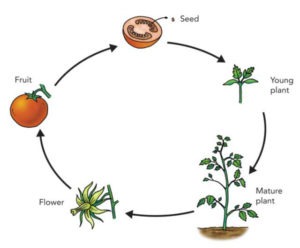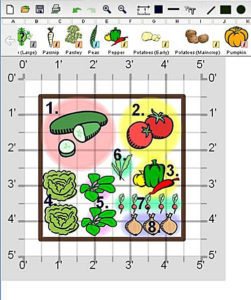Spring into action! Plant a garden with your child and watch their test scores, behavior, and language skills bloom.
We’ve had a year of shifting academics and social interaction to a virtual platform due to the Coronavirus Pandemic. Gardening is an easy, screen-free activity that can provide your child with numerous benefits.
Designing and digging a garden can be the perfect outdoor parent-child bonding activity. Not only is it fun and rewarding for kids, but studies have shown interacting with plants have benefits from reducing stress to promoting healthy eating habits.
Another reason to grab your garden gloves? Working with your child to plan, organize, and plant can help develop their executive functioning skills. And that could improve your child’s ability to complete academic and daily life tasks.
How exactly can you boost your child’s developmental skills through gardening? Let’s dig in!
Step 1: Plan the Plot
Start by letting your child choose what plants to grow. A few ideas:
- Pizza Garden. Include veggies you can use to top your family’s next homemade pizza, like mushrooms, spinach, and broccoli.
- Salsa Garden. Chips & salsa a favorite snack in your household? Cilantro, tomatoes, and onions it is!
- Rainbow Garden. Think cucumbers, bell peppers, strawberries, and other colorful fruits and veggies.
- Salad Garden. Plant lettuce and any favorites to make the perfect side salad at your next dinner!
Browse through a gardening magazine or website to order the seeds. Ask open-ended questions about what plants your child thinks you should choose and why. That can help develop cognitive skills like organization and reasoning.

Do some research with your child on the items you plan to include in your garden. Challenge your child to put their planning skills to work by gathering information on the stages of growth they can expect to see from their plants and what tools or materials they’ll need.
Step 2: Make a Map
Now it’s time for you and your gardening buddy to map out the location of the plants in your garden!
Help your child draw a picture of where each plant should go or use an online tool like this one:

Asking cause and effect questions can help your child use critical thinking skills. Do certain plants need to get more or less sun? Will some veggies need more room to grow than others? How will that affect where you choose to plant your seeds?
Help your child see the different options available when thinking about how to plan their garden. As they start to see that they can go about completing a task in multiple different ways, their cognitive flexibility skills can strengthen. That can help them tackle all kinds of to-do’s in their daily life.
Step 3: Dig In!
Time to let your green thumb shine and plant the seeds.
This part helps your child develop their ability to execute a plan. Before you get started, talk about what steps you’ll need to follow – weed, dig, plant, add soil, water. Through this, their sequencing skills can soar!
Focusing on following each step can develop your child’s inhibitory control. They’ll need to control their behavior, attention, and thoughts to each task at hand in order to get their garden growing. And good news! Outdoor activities like gardening have been proven by the American Journal of Public Health to improve children’s attention skills.
Step 4: Let your Garden Grow
Your child can’t bite into a juicy watermelon from their garden just yet! Give them some responsibilities for caring for their garden, like these:
- Watering.
- Weeding.
- Watching for the plants to reach each stage of growth.
Maintaining the garden through these tasks can help work your child’s memory skills each day. Getting up and working on the garden can also encourage their ability to initiate tasks.
Finally, let your child enjoy the fruits (and veggies) of their labor. Watching their plants grow, picking, and eating from their garden can boost self-confidence and provide positive reinforcement for all of that hard work!
If you have concerns about your child’s ability to complete aspects of tasks such as organization, maintaining attention, planning, or reasoning, consider consulting an expert. TherapyWorks provides pediatric speech, occupational and physical therapy services with licensed professionals that can evaluate your child and, if needed, provide ongoing therapy services.








